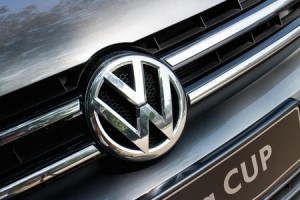Volkswagen Recall Reveals Scam, Hurts Germany’s Reputation
 Last week, we heard yet another story of a major automaker intentionally deceiving the public and the government.
Last week, we heard yet another story of a major automaker intentionally deceiving the public and the government.
Volkswagen has been ordered by the Environmental Protection Agency to recall nearly half a million diesel powered vehicles in the U.S. due to a software designed to cheat emissions tests. The software in the vehicles detects when an emissions test is being performed, and will reduce smog emissions during the test, making the car appear to be more environmentally friendly than it actually is. During normal driving time, the vehicles can emit up to 40 times the amount of nitrous oxide allowed by the Clean Air Act.
For a year, VW claimed that this discrepancy was the result of technical errors, but last week they admitted that the software was designed to intentionally cheat the tests.
Affected models include: diesel versions of the Jetta, Beetle, and Golf models from 2009-2015, as well as the 2014-2015 Passat, and the diesel Audi A3 from 2009-2015.
In all, over 11 million vehicles are affected worldwide. The company’s CEO, Martin Winterkorn, has since resigned.
Thankfully, this Volkswagen recall doesn’t leave drivers’ personal safety at risk the way that some other recalls do, but it still reveals a willingness to blatantly deceive the public and intentionally undermine the law. In addition to producing unlawful amounts of air pollution, Volkswagen has severely damaged the trust it may have had with consumers.
Drivers who paid for a car they believed to be environmentally friendly are understandably feeling ripped off.
 But this is definitely not the first time a major automaker has been caught scamming the American driver.
But this is definitely not the first time a major automaker has been caught scamming the American driver.
For decades, automakers have found ways to cheat regulations by making their cars appear more efficient or more clean in testing than they actually perform on the road. Last year, Hyundai and Kia paid hefty fines for significantly overstating the gas mileage on their vehicles, ripping off consumers who believed they were paying for a well-performing vehicle.
What’s worse, however, is the willingness of auto execs to lie when it comes to driver safety. In the last two years, we have seen massive recalls from GM and Takata after defects caused at least 130 driver deaths. The problem, many safety advocates say, is that when these automakers get caught, the consequences are often minimal. The fines are manageable, they are not required to pay punitive damages, and individual executives are typically not held personally responsible for the blatant deception they participated in. Corporate settlement funds set up for victims by the company at fault makes scandals like these mere “costs of doing business.” As long as there are no serious deterrents from misbehaving, corporations are likely to continue this pattern of corruption. And it’s the American public who will suffer.
However, in this case, there are some ways that Volkswagen appears to be suffering. Almost immediately after the news was made public, VW stock took a hit. Understandably, Volkswagen lost a good deal of trust with the American market, where it was already struggling to gain ground. While this scandal hasn’t put lives at risk the same way others have, it has seriously tarnished Germany’s reputation and could have major consequences for the German economy.
While this recall was strictly environmental, it shows a disturbing trend of automakers and corporate executives who are increasingly willing to lie, even if it means putting drivers at risk with minimal recourse. If you or a loved one have been involved in a car accident or have been hurt by a defective vehicle, contact the car accident lawyers at Munley Law Personal Injury Attorneys. We can be reached day or night at 855-866-5529.
Posted in Product Liability & Recalls.










